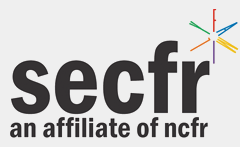A Social Justice Framework Design an Optimal Learning Environment Model
Proposal Focus
Practice
Presentation Type
Workshop
Abstract
Optimal learning environments designs that move beyond traditional pedagogical considerations to include Social Justice concepts can be a challenge for educators in academic and practice contexts. The workshop promotes learning environments designs reflective of inclusiveness and members’ psychosocial safety. Inclusiveness reflects sensitivity to learner diversity and promotive of psychosocial safety, a term coined by the workshop facilitator. Psychological safety is operationalized as the offering and receiving of respect despite and because of one’s differences, a knowing uniqueness will be honored as will beliefs and course content understanding. Psychosocial safety flourishes in strengths-based, trauma-informed atmospheres. Additionally addressed are barriers to designing optimal learning environments, including solution strategies.
Experiential Learning Theory informs the workshop; experiential learning devices (e.g., reflexive activities, group discussions) encourage defining and refining workshop skills and strategies. The sensitive and culturally bound nature of social justice suggests use of scaffolding of strategies by educators to aid integration of learning.
Keywords
SJ Framework, Learning, Strengths-based
Location
Wyndsor II
Start Date
3-4-2020 10:00 AM
End Date
3-4-2020 10:45 AM
A Social Justice Framework Design an Optimal Learning Environment Model
Wyndsor II
Optimal learning environments designs that move beyond traditional pedagogical considerations to include Social Justice concepts can be a challenge for educators in academic and practice contexts. The workshop promotes learning environments designs reflective of inclusiveness and members’ psychosocial safety. Inclusiveness reflects sensitivity to learner diversity and promotive of psychosocial safety, a term coined by the workshop facilitator. Psychological safety is operationalized as the offering and receiving of respect despite and because of one’s differences, a knowing uniqueness will be honored as will beliefs and course content understanding. Psychosocial safety flourishes in strengths-based, trauma-informed atmospheres. Additionally addressed are barriers to designing optimal learning environments, including solution strategies.
Experiential Learning Theory informs the workshop; experiential learning devices (e.g., reflexive activities, group discussions) encourage defining and refining workshop skills and strategies. The sensitive and culturally bound nature of social justice suggests use of scaffolding of strategies by educators to aid integration of learning.
![Southeastern Council on Family Relations Conference [2018-2020]](/assets/md5images/a0d3661d5139dc9b769a57be6f085156.png)

